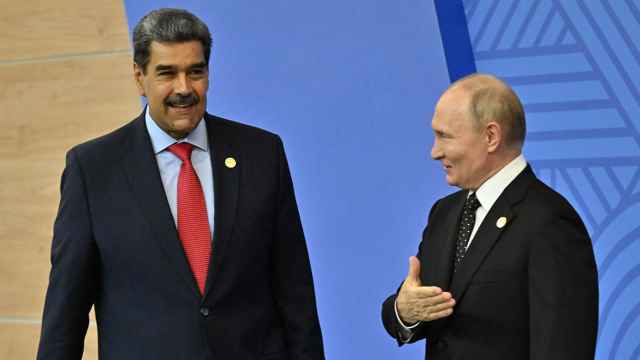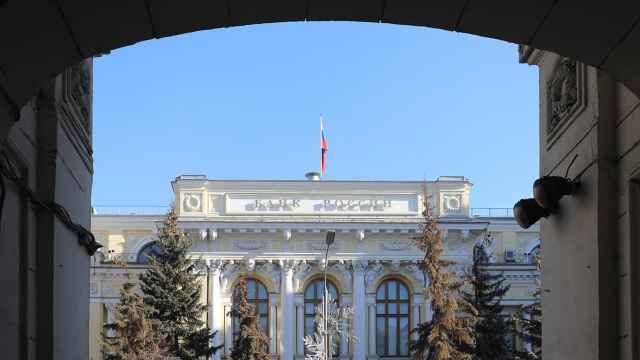An FSB operative — his features bathed in shadows — went on state television to claim that the U.S. diplomat who was ordered out of the country was the second American expelled this year over spying allegations.
The anonymous operative said the CIA had failed to halt this "disturbing activity" despite Moscow asking it to do so.
The TV report came after the Foreign Ministry ordered Ryan Fogle, a third secretary at the U.S. Embassy, to leave the country following a Federal Security Service claim to have caught him red-handed trying to recruit a Russian agent in Moscow. The agency alleged that Fogle worked for the CIA.
State TV channels on Wedneday night showed a man identified as an FSB agent saying that another American was told to leave in January in "another case of recruitment." The anonymous speaker did not give the name of the expelled American.
Various Russian TV networks gave different names for the American, and the FSB refused to clarify the name to The Associated Press. State Department spokesman Patrick Ventrell declined to comment.
The FSB agent said that in the January case his agency had decided not to publicize the expulsion, unlike the Fogle case, which has been top news in the Russian media this week. He said the FSB asked its U.S. counterparts after the January case to halt this "disturbing activity."
The attention given to the Fogle case contrasts with recent moves by Washington and Moscow to develop closer cooperation on counterterrorism in the wake of the Boston Marathon bombing on April 15.
"To put it mildly, it is surprising that this extremely crude, clumsy attempt at recruitment took place in a situation where both President Obama and President Putin have clearly stated the importance of more active cooperation and contacts between the speial services of the two countries," Putin's foreign affairs aide Yury Ushakov said Wednesday.
But Ushakov said counterterrorism cooperation would be among the issues addressed by Security Council head Nikolai Patrushev on a visit to Washington next week, in which he is to present a letter with Putin's response to an Obama message conveyed last month. The letter also is to address missile-defense, a long-standing point of tension between Russia and the United States.
Ushakov said it was unclear if the letter borne by Patrushev would take up the Fogle case.
A Message from The Moscow Times:
Dear readers,
We are facing unprecedented challenges. Russia's Prosecutor General's Office has designated The Moscow Times as an "undesirable" organization, criminalizing our work and putting our staff at risk of prosecution. This follows our earlier unjust labeling as a "foreign agent."
These actions are direct attempts to silence independent journalism in Russia. The authorities claim our work "discredits the decisions of the Russian leadership." We see things differently: we strive to provide accurate, unbiased reporting on Russia.
We, the journalists of The Moscow Times, refuse to be silenced. But to continue our work, we need your help.
Your support, no matter how small, makes a world of difference. If you can, please support us monthly starting from just $2. It's quick to set up, and every contribution makes a significant impact.
By supporting The Moscow Times, you're defending open, independent journalism in the face of repression. Thank you for standing with us.
Remind me later.





